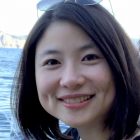Navid Azizan will join the MIT faculty with dual appointments in the Department of Mechanical Engineering and the Institute for Data, Systems, and Society (IDSS) as an assistant professor in September. He is currently a postdoctoral scholar in the Autonomous Systems Laboratory at Stanford University. He received his PhD in Computing and Mathematical Sciences (CMS) from the California Institute of Technology (Caltech) in 2020, his MSc from the University of Southern California in 2015, and his BSc from Sharif University of Technology in 2013. Additionally, he was a research intern at Google DeepMind in 2019. Azizan’s research interests broadly lie in machine learning, control theory, mathematical optimization, and network science. He has made fundamental contributions to various aspects of intelligent systems, including the design and analysis of optimization algorithms for nonconvex and networked problems with applications to the smart grid, distributed computation, epidemics, and autonomy. Azizan’s work has been recognized by several awards including the 2020 Information Theory and Applications (ITA) Graduation-Day Gold Award. He was named an Amazon Fellow in Artificial Intelligence in 2017 and a PIMCO Fellow in Data Science in 2018. His research on electricity markets received the ACM GREENMETRICS Best Student Paper Award in 2016. He was also the first-place winner and a gold medalist at the 2008 National Physics Olympiad in Iran. He co-organizes the popular “Control meets Learning” virtual seminar series.
https://engineering.mit.edu/wp-content/uploads/NavidAzizan_c-e1615573796508-330x330.jpg
Website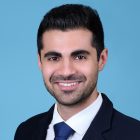
Navid Azizan
Mechanical Engineering https://engineering.mit.edu/faculty/navid-azizan/Rodrigo Freitas joined the Department of Materials Science and Engineering (DMSE) in January as the AMAX Assistant Professor. He received his BSc and MSc degrees in Physics from the University of Campinas in Brazil, and MSc and PhD degrees in Materials Science and Engineering from the University of California Berkeley, followed by postdoctoral work at Stanford University. During his PhD, he was also a Livermore Graduate Scholar in the Materials Science Division of the Lawrence Livermore National Laboratory. He uses a combination of theoretical, computational, and data-driven approaches to study the mechanisms of microstructure evolution in materials. This research area is critical to understand and control materials kinetics at the microstructure level, and it has broad potential impact and application, which will lead to collaborations across DMSE and in the Schwarzman College of Computing.
https://engineering.mit.edu/wp-content/uploads/RodrigoFreitas-scaled-e1615574156151-330x330.jpg
Website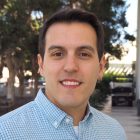
Rodrigo Freitas
Materials Science and Engineering https://engineering.mit.edu/faculty/rodrigo-freitas/Marzyeh Ghassemi will join the Institute for Medical Engineering and Science and the Department of Electrical Engineering and Computer Science as an Assistant Professor in July. She received her PhD in Computer Science from MIT; her MS in Biomedical Engineering from Oxford University; and two BS degrees, in Electrical Engineering and Computer Science, from New Mexico State University. Her research focuses on creating and applying machine learning to human health improvement. Ghassemi’s work has been published in topconferences and journals including NeurIPS, FaCCT, The Lancet Digital Health, JAMA, the AMA Journal of Ethics, and Nature Medicine, and featured in popular press such as MIT News, NVIDIA, and the Huffington Post. A British Marshall Scholar and American Goldwater Scholarwho has completed graduate fellowships at organizations including Xerox and the NIH, Ghassemi has been named one of MIT Tech Review’s 35 Innovators Under 35. Ghassemi organized MIT’s first Hacking Discrimination event and was awarded MIT’s 2018 Seth J. Teller Award for Excellence, Inclusion and Diversity. She also is on the Senior Advisory Council of Women in Machine Learning (WiML) and founded the ACM Conference on Health, Inference and Learning (ACM CHIL).
https://engineering.mit.edu/wp-content/uploads/Marzyeh-Ghassemi-e1615574513736-330x330.png
Website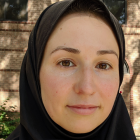
Marzyeh Ghassemi
Electrical Engineering and Computer Science Institute for Medical Engineering and Science https://engineering.mit.edu/faculty/marzyeh-ghassemi/Dylan Hadfield-Menell will join the Department of Electrical Engineering and Computer Science as an Assistant Professor in July. Hadfield-Menell received his PhD in Computer Science from UC-Berkeley, and his MS and BS (both in Computer Science and Electrical Engineering) from MIT. His research focuses on the value alignment problem in artificial intelligence, and aims to help create algorithms that pursue the intended goals of their users. He is also interested in work that bridges the gap between AI theory and practical robotics, and the problem of integrated task and motion planning. Hadfield-Menell is an NSF Graduate Research Fellowship Recipient and a Berkeley Fellow, with multiple conference papers published in the AAAI/ACM Conference on AI, Ethics, and Society and the ACM/IEEE International Conference on Human-Robot Interaction, among others. He was the technical lead on The Future Starts Here Exhibit for the Victoria and Albert Museum, and has interned at Facebook and Microsoft.
https://engineering.mit.edu/wp-content/uploads/Hadfield-Menell.png
Website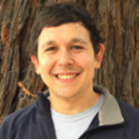
Dylan Hadfield-Menell
Electrical Engineering and Computer Science https://engineering.mit.edu/faculty/dylan-hadfield-menell/Jack Hare joined the Department of Nuclear Science and Engineering as an assistant professor in January. He received his BA (2010) and his MSci (2011) in Natural Sciences from the University of Cambridge, his MA in Plasma Physics from Princeton University in 2013, and his PhD in Plasma Physics from Imperial College, London in 2017. After his PhD, he held postdoctoral appointments at Imperial College London, where he has researched magnetized turbulence in high-energy-density plasmas, and at the Max-Planck Institute for Plasma Physics, where he worked on the design of diagnostics for the ITER fusion reactor project. At MIT, his research will focus on fundamental plasma processes in magnetized high energy density plasmas, such as magnetic reconnection and magneto-hydrodynamic turbulence. These plasmas are created using intense pulses of electrical current generated by the new PUFFIN pulsed-power facility, hosted on campus at the Plasma Science and Fusion Center.
https://engineering.mit.edu/wp-content/uploads/MIT_Jack_Hare-e1615574772864-330x330.jpg
Website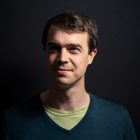
Jack Hare
Nuclear Science and Engineering https://engineering.mit.edu/faculty/jack-hare/Samuel Hopkins will join the Department of Electrical Engineering and Computer Science as an Assistant Professor in January 2022. Hopkins received his PhD in Computer Science from Cornell, and his BS in Computer Science and Mathematics from the University of Washington. His research focuses on algorithms, optimization, and theoretical machine learning, especially through the lens of convex programming relaxations. He is a Miller Fellow, an NSF Graduate Research Fellow, a Microsoft Research Fellow, and has won the Cornell Computer Science Dissertation Award; his publications include papers in FOCS, STOC, and the Annals of Statistics. Before coming to MIT, Hopkins was a Miller Fellow in the theory group at UC Berkeley.
https://engineering.mit.edu/wp-content/uploads/Samuel-Hopkins-330x330.jpg
Website
Samuel Hopkins
Electrical Engineering and Computer Science https://engineering.mit.edu/faculty/samuel-hopkins/Michael F. Howland will join the department of Civil and Environmental Engineering as an Assistant Professor in September. Currently he is a Postdoctoral Scholar at Caltech in the Department of Aerospace Engineering. He received his BS from Johns Hopkins University and his MS from Stanford University, both in mechanical Engineering. He received his PhD from Stanford University in the Department of Mechanical Engineering. His research encompasses the flow physics of Earth’s atmosphere and the modeling, optimization, and control of renewable energy generation systems. Michael’s work is focused at the intersection of fluid mechanics, weather and climate modeling, uncertainty quantification, and optimization and control with an emphasis on renewable energy systems. He uses synergistic approaches including simulations, laboratory and field experiments, and modeling to understand the operation of renewable energy systems, with the goal of improving the efficiency, predictability, and reliability of low-carbon energy generation. He was the recipient of the Robert George Gerstmyer Award, the Creel Family Teaching Award, and the James F. Bell Award from Johns Hopkins University. He received the Tau Beta Pi scholarship, NSF Graduate Research Fellowship and a Stanford Graduate Fellowship.
https://engineering.mit.edu/wp-content/uploads/headshot-scaled-330x330.jpg
Website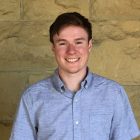
Michael F. Howland
Civil and Environmental Engineering https://engineering.mit.edu/faculty/michael-f-howland/Yoon Kim will join the Department of Electrical Engineering and Computer Science as an Assistant Professor in July. Currently a research scientist at the MIT-IBM Watson AI Lab, Kim received a PhD in Computer Science from Harvard, an MS in Data Science from NYU, an MA in Statistics from Columbia, and dual BA degrees in Mathematics and Economics from Cornell. Kim’s research focuses on machine learning and natural language processing. He is the recipient of a Google Fellowship.
https://engineering.mit.edu/wp-content/uploads/Yoon-Kim-330x330.jpg
Website
Yoon Kim
Electrical Engineering and Computer Science https://engineering.mit.edu/faculty/yoon-kim/Adrián Lozano-Duran joined the department of Aeronautics and Astronautics at MIT AeroAstro as an Assistant Professor in January. He received his PhD in Aerospace Engineering from the Technical University of Madrid in 2015 on the use of graph theory to unravel the dynamics of chaotic patterns in fluids. From 2016 to 2020, he was a Postdoctoral Research Fellow at Stanford University working on high-fidelity simulations of external aerodynamic applications. His research is focused on solving outstanding problems in physics & modeling of turbulent flows using transformative tools and creativity. His work includes turbulence theory & modeling by artificial intelligence, information theory, and quantum computing, with applications ranging from UAVs and commercial airliners to hypersonic vehicles. He is the recipient of the Milton van Dyke Award from the American Physical Society (2017), the Center for Turbulence Research Fellowship from Stanford University (2016), and the Da Vinci Award for the top five European dissertations on Fluid Mechanics (2015).
https://engineering.mit.edu/wp-content/uploads/Adrian-Lozana-Duran-scaled-330x330.jpg
Website
Adrián Lozano-Duran
Aeronautics and Astronautics https://engineering.mit.edu/faculty/adrian-lozano-duran/Dr. Kelly A. Metcalf Pate joined the department of Biological Engineering as an Assistant Professor and Director of the Division of Comparative Medicine in March. As Director of DCM, Dr. Pate will oversee the group of veterinarians and staff who serve as experts in animal models for the MIT community. Dr. Pate’s research focuses on the role of platelets in the pathogenesis of viral infection, with an emphasis on HIV and cytomegalovirus, and on the refinement and development of animal models.
https://engineering.mit.edu/wp-content/uploads/Kelly_Metcalf_Pate_3-scaled-330x330.jpg
Website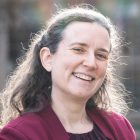
Kelly A. Metcalf Pate
Biological Engineering https://engineering.mit.edu/faculty/kelly-a-metcalf-pate/Anand Natarajan joined the Department of Electrical Engineering and Computer Science as an Assistant Professor in September 2020. Natarajan received his PhD in Physics from MIT, and an MS in Computer Science and BS in Physics from Stanford University. Natarajan’s interests center upon theoretical quantum information, particularly nonlocality (e.g. Bell inequalities and nonlocal games), quantum complexity theory (especially the power of quantum interactive proof systems), and semidefinite programming hierarchies. He is the co-winner of the Best Paper Award at FOCS ’19 for paper NEEXP ⊆ MIP*, with John Wright, and is a gold medalist in the International Physics Olympiad; his conference papers have been published in the Proceedings of ITCS, Proceedings of FOCS, and Proceedings of CCC, among others. Before joining MIT, Natarajan was a postdoc at the Institute for Quantum Information and Matter at Caltech.
https://engineering.mit.edu/wp-content/uploads/Anand-Natarajan-330x330.jpg
Website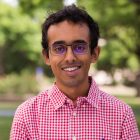
Anand Natarajan
Electrical Engineering and Computer Science https://engineering.mit.edu/faculty/anand-natarajan/Jelena Notaros joined the Department of Electrical Engineering and Computer Science in June 2020 as an Assistant Professor, a Principal Investigator in the Research Laboratory of Electronics, and a Core Faculty Member of the Microsystems Technology Laboratories. Professor Notaros received her PhD and MS degrees from MIT in 2020 and 2017, respectively, and BS degree from the University of Colorado Boulder in 2015. Her research interests are in integrated silicon photonics devices, systems, and applications, with an emphasis on integrated optical phased arrays for LiDAR and augmented reality. Professor Notaros was a Top-Three DARPA Riser, a 2018 DARPA D60 Plenary Speaker, a 2021 Forbes 30 Under 30 Listee, a 2020 MIT RLE Early Career Development Award recipient, an MIT Presidential Fellow, a National Science Foundation Graduate Research Fellow, a 2019 OSA CLEO Chair’s Pick Award recipient, a 2014 IEEE R5 Student Paper Competition First Place Award recipient, a 2019 MIT MARC Best Paper Award recipient, a 2018 MIT EECS Rising Star, and a 2015 CU Boulder Chancellor’s Recognition Award recipient, among other honors.
https://engineering.mit.edu/wp-content/uploads/JelenaNotarosPhotoSquare-scaled-330x330.jpg
Website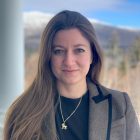
Jelena Notaros
Electrical Engineering and Computer Science https://engineering.mit.edu/faculty/jelena-notaros/Carlos Portela joined the Department of Mechanical Engineering as an assistant professor in August 2020. He received his PhD in Mechanical Engineering from the California Institute of Technology in 2019. He was a postdoctoral scholar at Caltech under the guidance of Professors Julia Greer, Dennis Kochmann, and Chiara Daraio. Portela’s research lies at the intersection of materials science, mechanics, and nano-to-macro fabrication with the objective of designing and testing novel materials—with features spanning from nanometers to centimeters—that yield unprecedented mechanical, optical, and acoustic properties. His recent accomplishments have provided routes for fabrication of these so-called ‘nano-architected materials’ in scalable processes as well as testing nanomaterials in real-world conditions such as supersonic impact, in collaboration with researchers at MIT’s Institute for Soldier Nanotechnologies. His present application areas involve the creation of novel lightweight armor materials, ultrasonic devices for medical purposes, and new generations of ultra-strong structural materials. Portela is the recipient of several awards including the Gold Paper Award at the Society of Engineering Science Meeting in 2019, the Centennial Award for the Best Thesis in Mechanical and Civil Engineering at Caltech, and the Caltech Rolf H. Sabersky Graduate Fellowship.
https://engineering.mit.edu/wp-content/uploads/Carlos-Portela-scaled-e1615576861232-330x330.jpg
Website
Carlos Portela
Mechanical Engineering https://engineering.mit.edu/faculty/carlos-portela/Ashia Wilson joined the Department of Electrical Engineering and Computer Science as an Assistant Professor in January. Wilson received her PhD in Statistics from the University of California, Berkeley, and her BA in Applied Mathematics from Harvard. Her research centers upon optimization, algorithmic decision making, dynamical systems, and fairness within large scale machine learning. A National Science Foundation Graduate Research Fellow, Wilson has received the NeurIPS ’17 Spotlight Paper Award for The Marginal Value of Adaptive Methods in Machine Learning, and has performed research with Microsoft and Google AI. Her papers have been published in the Proceedings of the National Academy of Science, in Advances in Neural Information Processing Systems, and in the International Conference of Machine Learning, among others. Additionally, she has served as a reviewer for NeurIPS and the Journal of Machine Learning.
https://engineering.mit.edu/wp-content/uploads/Ashia-Williams-330x330.jpg
Website
Ashia Wilson
Electrical Engineering and Computer Science https://engineering.mit.edu/faculty/ashia-wilson/Sixian You joined the Department of Electrical Engineering and Computer Science as an Assistant Professor in March. Dr. You received her PhD and MS in Bioengineering from the University of Illinois at Urbana-Champaign, and her BS in Optical and Electronic Information from Huazhong University of Science and Technology. Her research interests are biophotonics, microscopy, and computational imaging. She has won the Microscopy Innovation Award and the Nikon Photomicrography Competition Image of Distinction award, and her work has been featured on the PNAS Cover and as a Nature Communications Editors’ Highlight, among other honors. The You Lab focuses on developing optical imaging tools to enable noninvasive, deeper, faster, and richer visualization of dynamic biological processes and disease pathology. She is currently a postdoc at the University of California at Berkeley and, and has been an engineer, intern for Apple.
https://engineering.mit.edu/wp-content/uploads/sixian_you-1-330x330.jpg
Website